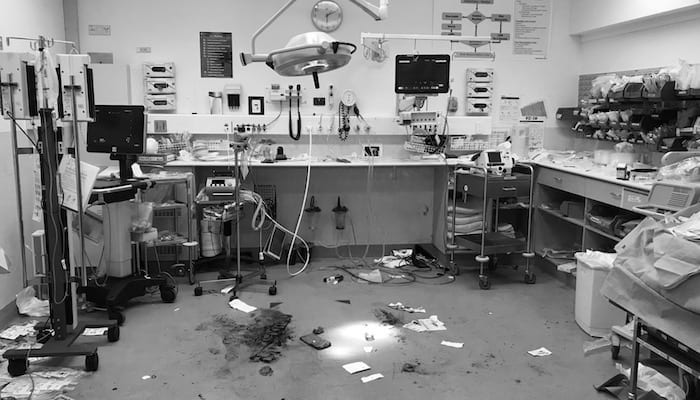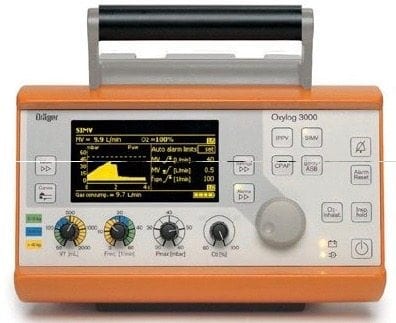Own the Oxylog
aka Ruling the Resus Room 010
If you’re a doc or nurse in Australasia and you take care of critically ill patients chances are you’ll be familiar with the Oxylog 3000. This is the workhorse many of us use to ventilate transported patients, whether it be to the CT scanner and back, or half way across the continent.
You may be familiar with it, but can you ‘own’ it?
Own the Oxylog 3000 – Guides
George Douros, an Emergency Physician from the Austin Hospital in Melbourne has created these useful charts to help you ‘own the Oxylog® 3000’ (partly inspired by Scott Weingart’s ‘Dominating the Vent Part 1‘ and ‘Dominating the Vent Part 2‘. The charts can easily be cut in half, stuck together and attached to the machine or be used as posters to jog your memory.
Guide for Pressure Controlled ventilation
Guide for Volume Controlled ventilation
Oxylog Baby Steps
- If you’re not quite ready to own the Oxylog yet, start with Jo Deveril and the basics and ‘borrow the Oxylog 3000‘ first!
- If you’re a little hesitant about playing with knobs when the oxylog’s attached to a real person there is a pretty cool online simulator that you can play around with on the Drager website.
- As much as we love the Oxylog® 3000, we suggest you read Take a big breath in… and hold it so you don’t get caught out by the lack of an oxygen disconnect breakthrough alarm…
Thoughts on Plateau Pressure
There have been a few comments about how to measure plateau pressure using the Oxylog 3000. Here is a diagram from the user manual showing exactly what plateau pressure is (in volume-controlled ventilation IPPV (CMV) mode):

Videology
Borrow the Oxylog
So this video is for Oxylog knobophobes who can’t get off square 1. As well as showing you how to turn the machine on, the video is packed with FACTS FACTS FACTS:
- WHAT happens if you drop an Oxylog 3000 on your foot.
- WHY you shouldn’t leave an Oxylog 3000 in a taxi.
- HOW to position your genitalia when pressing the inspiratory hold key.
Own the Oxylog
Related links
- LITFL: Borrow the Oxylog 3000
- EMCrit.org: Dominating the Vent Part 1 and Dominating the Vent Part 2
- EM Updates: Emergency Department Intubation Checklist v13
- Connolly EM: Oxylog 3000 Plus Overview
- Pulmonary Puzzle 012: Man versus machine: can you deal with post-intubation hypoxia?
- Pulmonary Puzzle 013: Bronchospastic blood pressure badness: what about post-intubation hypotension in an asthmatic?
- Pulmonary Puzzle 014: Alarmingly high pressures: what to do when a high pressure alarm goes off? Which pressures are important?

CLINICAL CASES
Resus Room Reflection
Chris is an Intensivist and ECMO specialist at The Alfred ICU, where he is Deputy Director (Education). He is a Clinical Adjunct Associate Professor at Monash University, the Lead for the Clinician Educator Incubator programme, and a CICM First Part Examiner.
He is an internationally recognised Clinician Educator with a passion for helping clinicians learn and for improving the clinical performance of individuals and collectives. He was one of the founders of the FOAM movement (Free Open-Access Medical education) has been recognised for his contributions to education with awards from ANZICS, ANZAHPE, and ACEM.
His one great achievement is being the father of three amazing children.
On Bluesky, he is @precordialthump.bsky.social and on the site that Elon has screwed up, he is @precordialthump.
| INTENSIVE | RAGE | Resuscitology | SMACC




In case you have a Hamilton – here is our “own the Hamilton” card – https://emergencypedia.com/2021/05/26/own-the-hamilton-t1
Great stuff Andrew!
Cheers
Chris